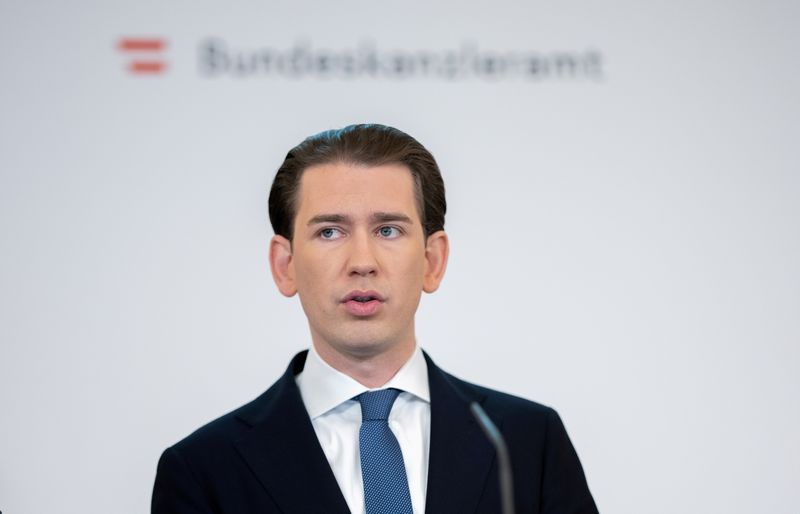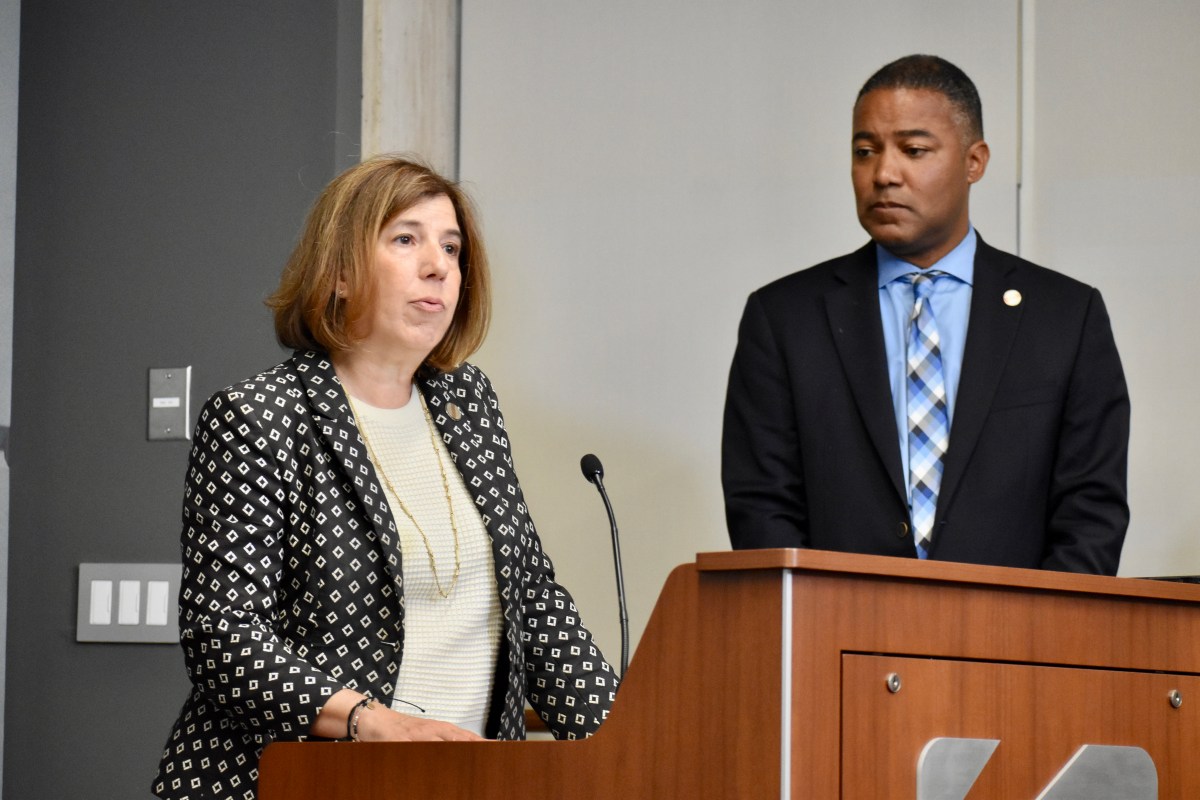By Francois Murphy and Alexandra Schwarz-Goerlich
VIENNA (Reuters) -Austria’s Greens, the junior party in the ruling coalition, raised the prospect on Thursday of deposing Chancellor Sebastian Kurz by holding talks with other parties on next steps after he was placed under investigation on suspicion of bribery.
All three main opposition parties have called for Kurz’s resignation and are preparing a motion of no confidence against him in parliament, which would need the Greens’ support to succeed. Two of the three have said they do not want a snap election.
The leader of the Greens, a left-wing party that campaigned on “clean politics” and went into coalition with Kurz last year, said they had invited other parties in parliament to talks on what should happen next.
“We have thus reached a new level. The impression this gives is devastating. The facts must be fully established. That is what the people in Austria expect,” Greens leader and Vice Chancellor Werner Kogler said in a statement.
“We cannot go back to business as usual. The chancellor’s ability to act is called into question in this context.”
A special session of the lower house of parliament will be held on Tuesday to discuss the investigation. Kurz said on Wednesday he would not step down.
Austrian President Alexander Van der Bellen, who has the power to dismiss the chancellor or the whole cabinet, also planned his own talks with party leaders individually and was due to meet Kurz at 4 p.m. (1400 GMT), after receiving Kogler.
Prosecutors said on Wednesday they had placed Kurz and nine others under investigation on suspicion of breach of trust, corruption and bribery with various levels of involvement. Kurz denies any wrongdoing.
“It is a very serious situation and these talks should be carried out very seriously,” the leader of the opposition Social Democrats, Pamela Rendi-Wagner, said early on Wednesday afternoon, adding they would begin in the coming hours.
“It is a decision on the future course that must be taken, above all by the Greens as coalition partner. They will decide whether this motion of no-confidence succeeds or not.”
Prosecutors’ suspicion is that, starting in 2016 when Kurz was seeking to take over as party leader, the conservative-led Finance Ministry paid for advertisements in a newspaper in exchange for polling and coverage favourable to Kurz.
Kurz was already under investigation on suspicion of perjury in a separate case, in which he also denies wrongdoing.
The allegations pose a major political challenge for him after he emerged relatively unscathed from a video sting scandal in 2019 that ended his coalition with the far right.
If parliament or the president were to depose Kurz, it is unclear who might replace him as he has been his party’s undisputed leader until now. In August he was re-appointed at a party conference with 99.4% support.
(Reporting by Alexandra Schwarz-Goerlich and Francois Murphy; Editing by Raissa Kasolowsky)

























